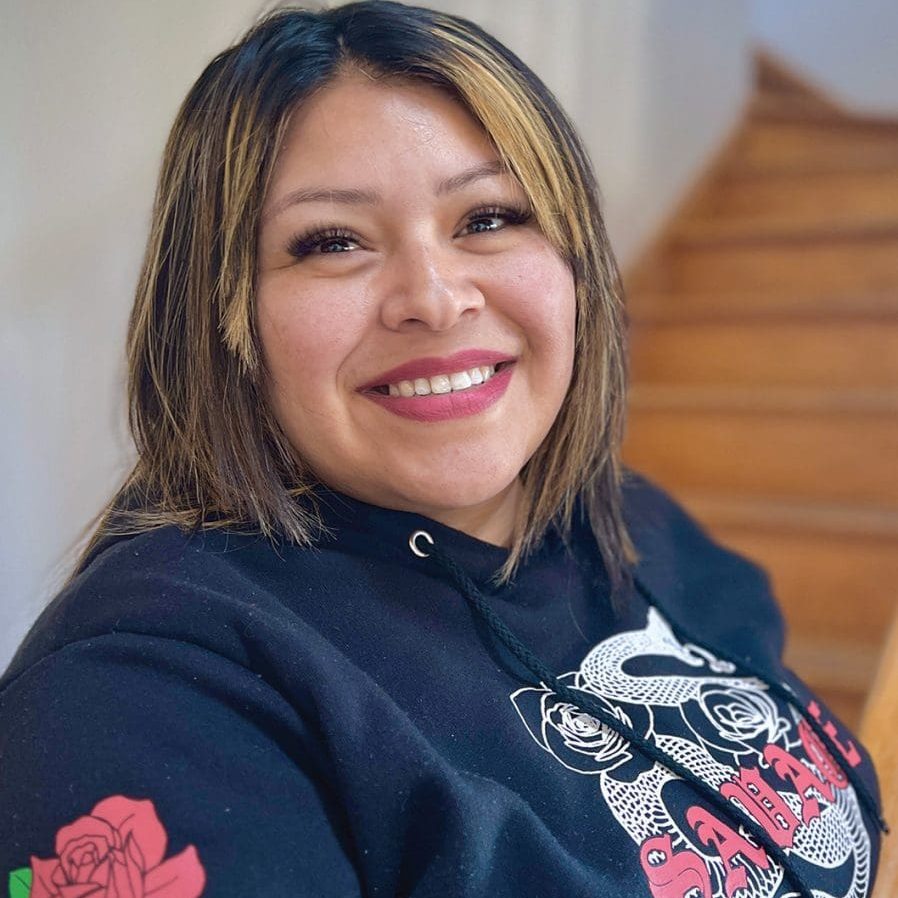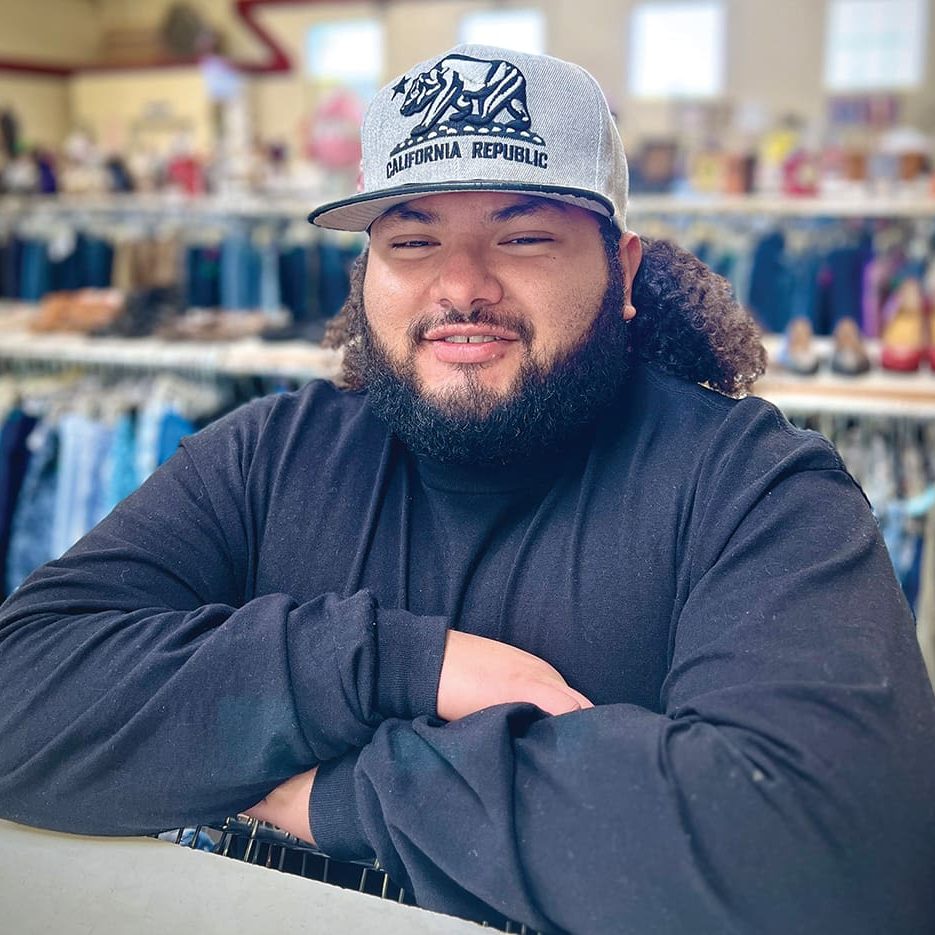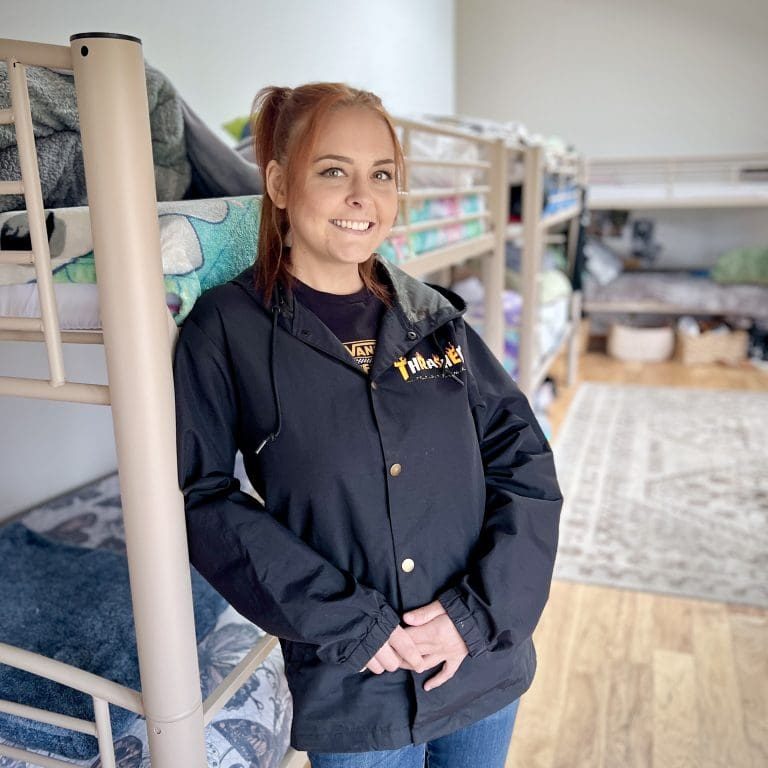Stories that Inspire.
Victories to Celebrate.
Marshall Wants Out Of The ‘Deep Hole’ He’s In After Overdose
Marshall was born in Santa Barbara, but spent most of his childhood in Mississippi. When he was 16, he tried meth. “I did it one time, and then we moved back to California,” he said. “And then I just decided to further search for that because of the grip that it had on me, just from that one time. I (used meth) for a whole summer when I was 16, just running around living on the street.”
Marshall’s parents had separated, and he and his dad and his little brother were staying at his grandparents’ house. “They kicked me out,” Marshall said. “They would lock the doors on me. I’d knock and knock and they wouldn’t let me in. They wouldn’t let me in when I was doing that.”
But when fall rolled around, Marshall quit. He went to Santa Barbara High School and played sports. Then he went to community college and got his certificate in construction technology. He also started the automotive program.
But when he was 21, Marshall was lured back to drugs. “I got a big chunk of money from an inheritance,” he said. “I used again briefly then, for a week or two, but decided I wanted to stop. But since I had been awake for so long, I decided to get some heroin to try to go to sleep. I wasn’t used to heroin. I did it, and I overdosed extremely badly.
“I was in the hospital for 28 days, seven days in the ICU. They had to slice my legs open, leaving me with permanent scars for the rest of my life. When I overdosed, I was out for 20 hours. I lost circulation to my legs. I had acute kidney failure, and was on dialysis. I couldn’t walk, and I was in a wheelchair for a month.”
The experience was very traumatic physically, and also took a toll on Marshall mentally. “It was hard because I didn’t use drugs for long, long periods of time,” he said. “I just had these random binges in my life and I got bit harder than people who have been doing this for their whole entire lives.”
Last December, a couple of years after the overdose, Marshall used again. “I had been drinking pretty badly, but I was maintaining a lifestyle—although not a very pleasant one. I was drinking at work, and every single day after work. I had a job and my own place in Santa Barbara. I got a raise, and for some reason, I thought it would be OK to get high.”
Things took a dark turn quickly. “I immediately quit my job after I did that because I didn’t want people to see me like that, on that drug. I quit everything that I had going for me. I did it because of the depression that I feel from the overdose. I’m still trying to learn how to deal with the trauma from that incident.”
Despite the brevity of his use, Marshall said it immediately took hold. “It was a short stint, but it really brought me into a gnarly state of psychosis because of how terrible that drug is,” he said. “I went to the hospital because of the paranoia I was having.
I couldn’t go to my dad’s place in Santa Ynez—he was renting and couldn’t have long term guests. I was wandering around, living in my truck.”
Marshall heard about the mission and called Chris, its program manager. “I asked what they offered here. He said, ‘We offer a free, 10-month program for people exactly like yourself.’ He invited me in and I started the program the same day.”
On Dec. 28, Marshall moved into the mission. “I like that this place is so welcoming and so providing and accepting. I was crazy when I came here and talked to Chris. I was paranoid and I was hearing voices and seeing things and Chris knew how to handle that. He cared for me with a lot of compassion.”
Marshall, now 23, is planning on graduating and then finishing up the automotive program he started in college. Just four months into the program, he is grateful for the opportunity he’s having at the mission. “They provide nourishment and food and shelter of course, but I’m also getting the time to reflect on Jesus—I really need him. God is the only thing that can help me because of the deep hole I’ve dug for myself. I’m just so thankful for the mission because of that. I’m really being allowed time to get my head back on straight.”
He said the donors are providing an invaluable service. “Just know that you’re really making a difference in somebody’s life who really didn’t have much hope,” Marshall said.“I still struggle with that, but every day, I’m inching toward seeing more and more hope. Thank you for that, because I needed it.”
Be Inspired
Be Transformed
Stay connected with the good work the Mission is doing, and learn more about the people we help.



